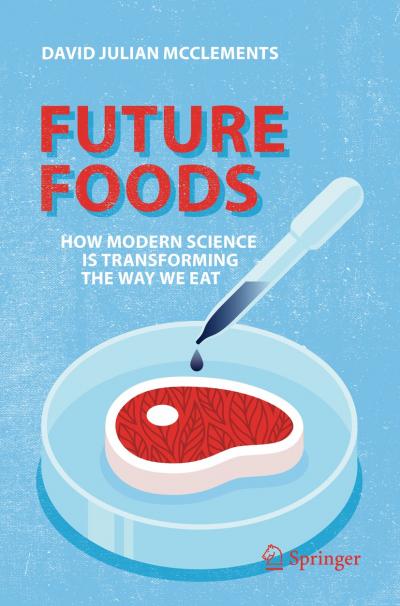Future foods: How modern science is transforming the way we eat

Credit: Springer Nature
Should nanotechnology and gene editing be used to enhance our foods? Are these technologies safe? Would you eat bug-foods if it led to a more sustainable food supply? This is just a sampling of the questions addressed by Future Foods: How Modern Science is Transforming the Way We Eat. Author and food scientist David Julian McClements examines the complexity and magnitude of the food-related challenges our society faces today. Step by step, he explores how today’s challenges, such as malnutrition, food waste and global hunger, could be solved by tomorrow’s technology.
Future Foods illustrates the developments in food science through (nano)techonological advances – for example, fertilizer optimization to reduce the impact of pesticides on the environment while at the same time improving yields and reducing losses. The author explains how advanced sensor technologies are combined with artificial intelligence to create sophisticated surveillance and control systems with the potential to improve food productivity, enhance sustainability and benefit the environment. In addition, he critically investigates these systems which are prone to sabotage and can execute worrisome levels of control over our lives.
McClements also addresses issues directly related to our health. Considering the alleged benefits of superfoods, he discusses different diets, including their scientifically proven benefits and shortcomings. For example, he explores if we should be consuming (more) insects to better fulfil our protein needs and find a sustainable source to feed the world’s growing population. He also takes up fiercely debated topics like meat consumption and examines plant-based meat alternatives, cultured meat, and the harmful effects of cattle farming. Future Foods shines light on these issues and urges the reader to engage in critical conversation about something as seemingly simple as food.
###
David Julian McClements is a Distinguished Professor in food science who has used physics, chemistry, and biology to improve the quality, safety, and healthiness of foods for over 30 years. He has published over 900 scientific articles and 10 books in this area and is currently the most highly cited food scientist in the world. He has won numerous scientific awards for his work.
David Julian McClements
Future Foods
How Modern Science Is Transforming the Way We Eat
Softcover €29,95 | £24.99 | $34.99 | ISBN 978-3-030-12994-1
Also available as an eBook
Media Contact
Deborah Pirchner
[email protected]
Original Source
https:/




